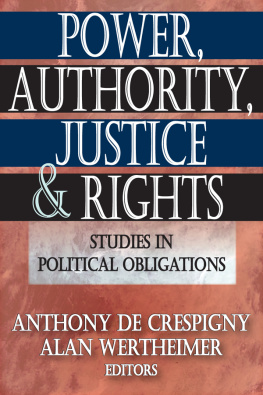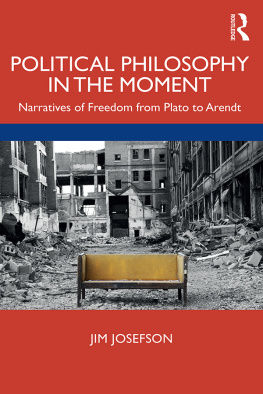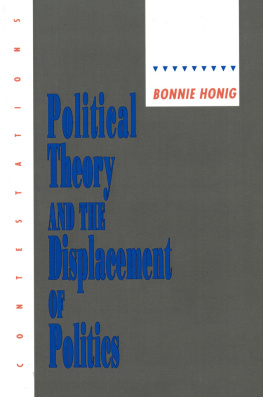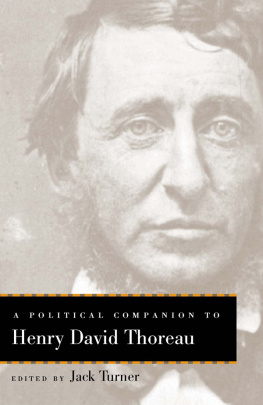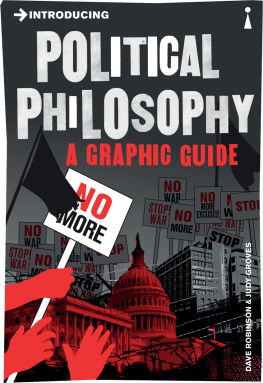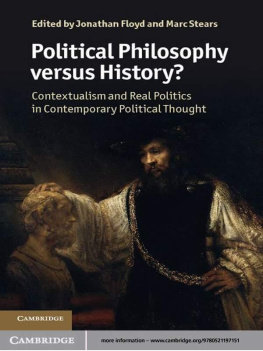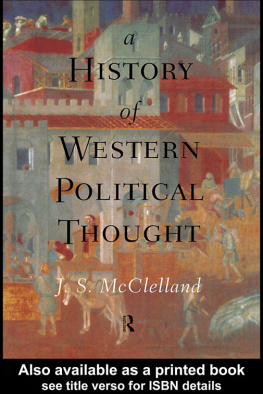THE PLEBEIAN EXPERIENCE
COLUMBIA STUDIES IN POLITICAL THOUGHT/POLITICAL HISTORY DICK HOWARD, GENERAL EDITOR
Columbia Studies in Political Thought/Political History is a series dedicated to exploring the possibilities for democratic initiative and the revitalization of politics in the wake of the exhaustion of twentieth-century ideological isms. By taking a historical approach to the politics of ideas about power, governance, and the just society, this series seeks to foster and illuminate new political spaces for human action and choice.
Pierre Rosanvallon, Democracy Past and Future, edited by Samuel Moyn (2006)
Claude Lefort, Complications: Communism and the Dilemmas of Democracy, translated by Julian Bourg (2007)
Benjamin R. Barber, The Truth of Power: Intellectual Affairs in the Clinton White House (2008)
Andrew Arato, Constitution Making Under Occupation: The Politics of Imposed Revolution in Iraq (2009)
Dick Howard, The Primacy of the Political: A History of Political Thought from the Greeks to the French and American Revolution (2010)
Robert Meister, After Evil: Human Rights Discourse in the Twenty-first Century (2011)
Paul W. Kahn, Political Theology: Four New Chapters on the Concept of Sovereignty (2011)
Stephen Eric Bronner, Socialism Unbound: Principles, Practices, and Prospects (2011)
David William Bates, States of War: Enlightenment Origins of the Political (2011)
Warren Breckman, Adventures of the Symbolic: Post-Marxism and Radical Democracy (2013)
THE PLEBEIAN EXPERIENCE
A DISCONTINUOUS HISTORY OF POLITICAL FREEDOM
MARTIN BREAUGH
TRANSLATED BY LAZER LEDERHENDLER
COLUMBIA UNIVERSITY PRESS
NEW YORK

COLUMBIA UNIVERSITY PRESS
PUBLISHERS SINCE 1893
NEW YORK CHICHESTER, WEST SUSSEX
cup.columbia.edu
Copyright 2007 Editions Payot & Rivages
Translation copyright 2013 Columbia University Press
All rights reserved
E-ISBN 978-0-231-52081-2

This work is published with support from the French Ministry of Culture / Centre national du livre.
Library of Congress Cataloging-in-Publication Data
Breaugh, Martin.
[Exprience plbienne. English.]
The Plebeian Experience : A Discontinuous History of Political Freedom / Martin Breaugh ; translated by Lazer Lederhendler.
pages cm. (Columbia studies in political thought/political history)
Includes bibliographical references and index.
ISBN 978-0-231-15618-9 (cloth: alk. paper) ISBN 978-0-231-52081-2 (e-book)
1. DemocracyHistory. 2. Political scienceHistory. 3. LibertyHistory. 4. Plebs (Rome) 5. JacobinsFranceHistory18th century 6. JacobinsGreat BritianHistory. 7. Sansculottes. 8. Paris (France)HistoryCommune, 1871 I. Title.
JC421.b78313 2013
320.01DC23
2013013654
A Columbia University Press E-book.
CUP would be pleased to hear about your reading experience with this e-book at .
BOOK & COVER DESIGN: CHANG JAE LEE
COVER IMAGE: PARIS COMMUNE, MAY 16, 1871 ADOC-PHOTOS / CORBIS
References to websites (URLs) were accurate at the time of writing. Neither the author nor Columbia University Press is responsible for URLs that may have expired or changed since the manuscript was prepared.
For Andr Vachet, homme libre
All that people have at birth is the potential to be free. Actual freedom begins with acts of liberation.
Oskar Negt
While I understand that the word people seems to have been appropriated by populism, I see no reason to be intimidated by this. Why desist from reappropriating the word people, not in the sense of an identity but in the concrete sense of the plebs? The plebs demanding their rights.
Jean-Luc Nancy
If history is to be creative, to anticipate a possible future without denying the past, it should, I believe, emphasize new possibilities by disclosing those hidden episodes of the past when, even if in brief flashes, people showed their ability to resist, to join together, occasionally to win. I am supposing, or perhaps only hoping, that our future may be found in the pasts fugitive movements of compassion rather than in its solid centuries of warfare.
Howard Zinn
CONTENTS
DICK HOWARD
DICK HOWARD
IN OCTOBER 2012, THE CONSERVATIVE PARTY CHIEF WHIP, Andrew Mitchell, was forced to resign because he apparently called a Downing Street policeman a plebeian. The uproar was surprising, as was the usage. Those upper-class British who traditionally studied Roman history seem to have forgotten that the distinctive nature of the plebs was not their economic class but the fact that they were denied political rights. But the spontaneous public reaction to the disdainful put-down shows that the public understood instinctively the antidemocratic weight of that slur. It was as if the trace of an inherited memory had been awakened, activated, and, for a brief moment, become a public value. This political moment in however a minor key is what Martin Breaughs historical tableau illuminates.
The Plebeian Experience reconstructs the discontinuous history of a hidden tradition that underlies the always renewed democratic imperative that first took form in 494 BCE when the Roman plebs withdrew to the Aventine Hill to protest their political exclusion. But this was not only a protest or a withdrawal; it was a positive self-affirmation. It was the first step in a complicated process, marked by ruptures that left traces that were later activated by memories that emerged unexpectedly. It began a process that recurred in recognizable patterns, for example, in the revolt of the Ciompi in Florence, the Carnival at Romans, and the revolt of Masaniello in Naples. Different times, different region, same struggle, says Breaugh, suggesting that there is some deeper structure or tension underlying the similar appearances. And in effect, he skillfully introduces two excurses into his discontinuous history: the first explicates Claude Leforts theory of the originary division of the social, and the second introduces Jean-Franois Lyotards account of the way in which there is always an intractable or irreducible element that prevents the achievement of a completely transparent society. These two excurses explain why politics can never be reduced to socioeconomic relations, however weighty they appear. By the same token, and for the same reasons, politics cannot overcome social division.
This historical introduction of philosophical reflection sets the tone for what follows by showing how historical description acquires its richness, and its ambiguity, as the result ofand as an incitation totheoretical reflection. Breaugh illustrates this interdependence by means of vivid and concise accounts of the way the simple picture of the emergence of the Roman plebs was reinterpreted, first, in the classical period by Machiavelli, Montesquieu, and Vico; then, in the light of the revolutionary experience by Ballanche and De Leon; and, once again, in our own times by Foucault and Rancire. Because they are less well known today, the presentation of the middle group, Ballanche and De Leon, is most illustrative of Breaughs approach. Their return to Roman history is guided by their quest to understand the plebeians of their time whose demands could not be reduced to economic wealth or social status. De Leon, for example, noted that although they were politically excluded, the economic divisions between the wealthy and the poor plebs was exploited by the patricians, who formed a self-serving alliance with the wealthier plebs. What else, asked De Leon, was the refusal of the skilled craft workers led by the AFL of Samuel Gompers to support their unskilled exploited brethren against their real enemy, who ensured economic power by controlling the levers of political power?
Next page

